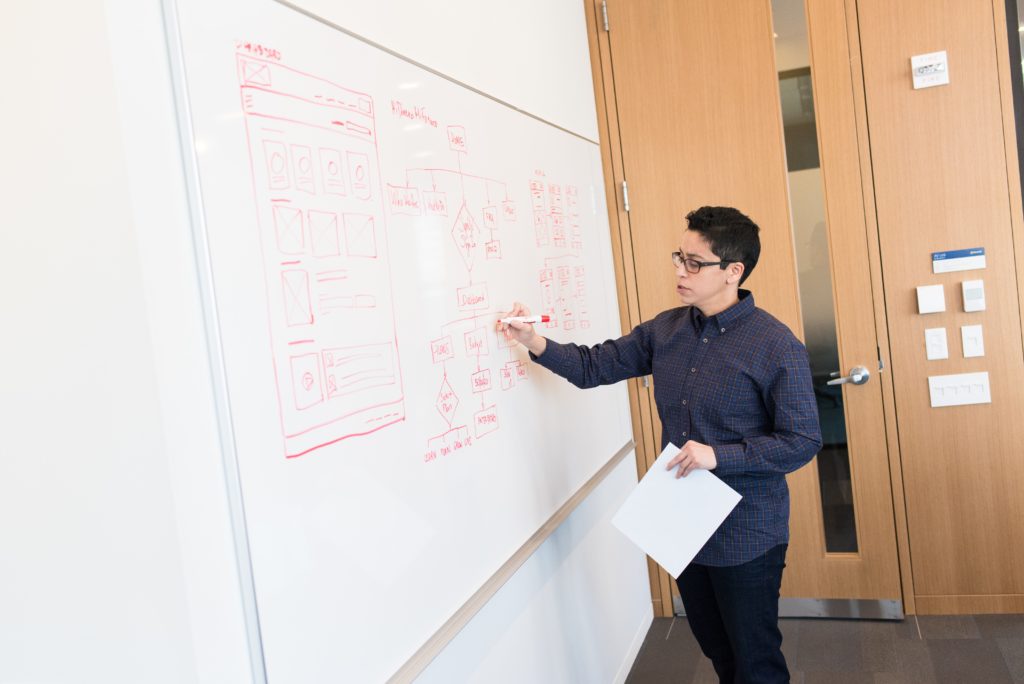By Dr Winnie Salamon
There are some people who walk into their first class at university without feeling the least bit nervous. You know the type; within the first half hour, they’ve told the entire class about their Google internship and the time they had dinner with Taylor Swift’s cousin.
Then there’s everyone else.
Nervous, unsure of whether they belong, worried they won’t be able to keep up and if you’re an international student, daunted by the fact that English is not your first language.
As someone who has been tutoring and lecturing in Professional Writing and Media subjects for over ten years, I’ve taught university students from all over the globe.
No matter what you’re studying, here are some tips for studying in Australia that I think every international student needs to know.
It’s OK if your English isn’t perfect
My European grandparents spoke four languages. Me? I speak one. And sadly, this is true of most of us Aussies. So, the fact that you are undertaking a university degree in a second, third or even fourth language is impressive in itself.
Unfortunately, it’s quite common for international students to avoid participating in class discussions, and a big reason for this is language-related. Remember, the best way to improve your fluency in English is practice. No one is judging you for having an accent or for a few grammatical errors, and if they are, it’s their problem, not yours.
Which takes me to my next point…
Never be afraid to ask for help, and ask sooner rather than later
Studying in a foreign language is really tough, especially when you are surrounded by native English speakers. If you are struggling to keep up, or your marks are not what you were hoping for, make sure you speak to your tutor about it. Our job is to help you improve and learn and have the best experience that you can in our class.
At the same time, lecturers and tutors are busy people who are usually juggling several classes. Organisations such as Write Squad can help you with your writing and assignments in a more involved and specialised way. The more help you get, the faster you will improve – and your grades will thank you for it.
Yes, it’s boring, but organisation is key
Hot tip: never ask your tutor for an extension simply because you have two assignments due on the same day – this will not go down well. Every student needs to learn how to organise their time.
Avoidance is also not your friend. If you are finding an assignment challenging, the sooner you ask for help the better. Don’t put it off until the last minute. Emailing your tutor at midnight the day before your assignment is due will not do you any favours.
And try to attend as many classes as possible. Being punctual also helps. We understand that things come up and no one will punish you for missing a class or two. However, if you are consistently late, or you miss several classes without explanation, I’ll assume you don’t really care about your studies.
Communication is everything
I can’t even count the number of times a student has approached me after class with a question they were too embarrassed to ask in front of the group. Group discussion plays a big role in Australian university classrooms, which may be quite different to what you are used to back home. One of the greatest joys of teaching is being exposed to a range of different points of view and perspectives. If you don’t understand something, never be afraid to ask. Chances are, you’re not the only one.
At the same time, a good tutor will understand how daunting class discussion can be. If you are having a hard time, the best thing you can do is make an appointment to see your tutor and talk to them about it. The more we know, the more we can help.
Be prepared to put in some extra time
It’s not fair, but when you are studying in a foreign language, you will probably need to work harder than a local student – at least at the beginning. This is not because you are less capable, but because you are facing an extra challenge.
Never forget: being multi-lingual is a huge advantage and your hard work will be well worth it in the end. I’m always amazed to see how quickly the English language skills of international students improve when they seek extra help and put in the work.
Be kind to yourself
Yes, your education is very important and you want to make the most of your degree, but you are also studying in a foreign country with the opportunity to make new friends and visit places you’ve never been before. So, have fun!
Ultimately, you are learning so much more than a degree alone can provide. Independence, self-care, time management, social skills and resilience are qualities you won’t even notice yourself developing, but for the rest of your life, you’ll be thankful that you did.
It’s important to feel confident with your English language expression so you have a positive and fulfilling experience studying in Australia. Write Squad can help you to develop your writing and research skills so when you graduate you have an edge over the competition.







